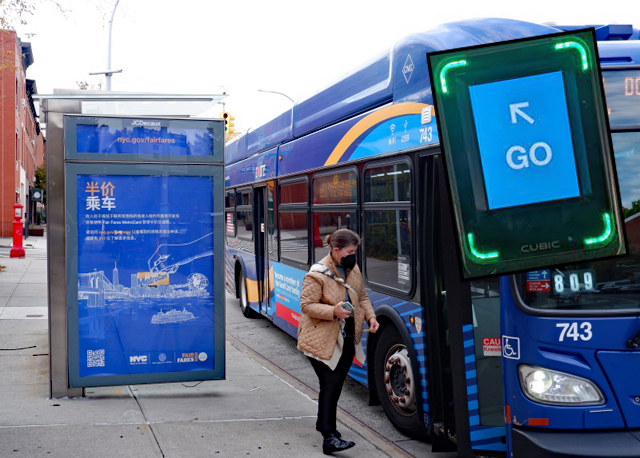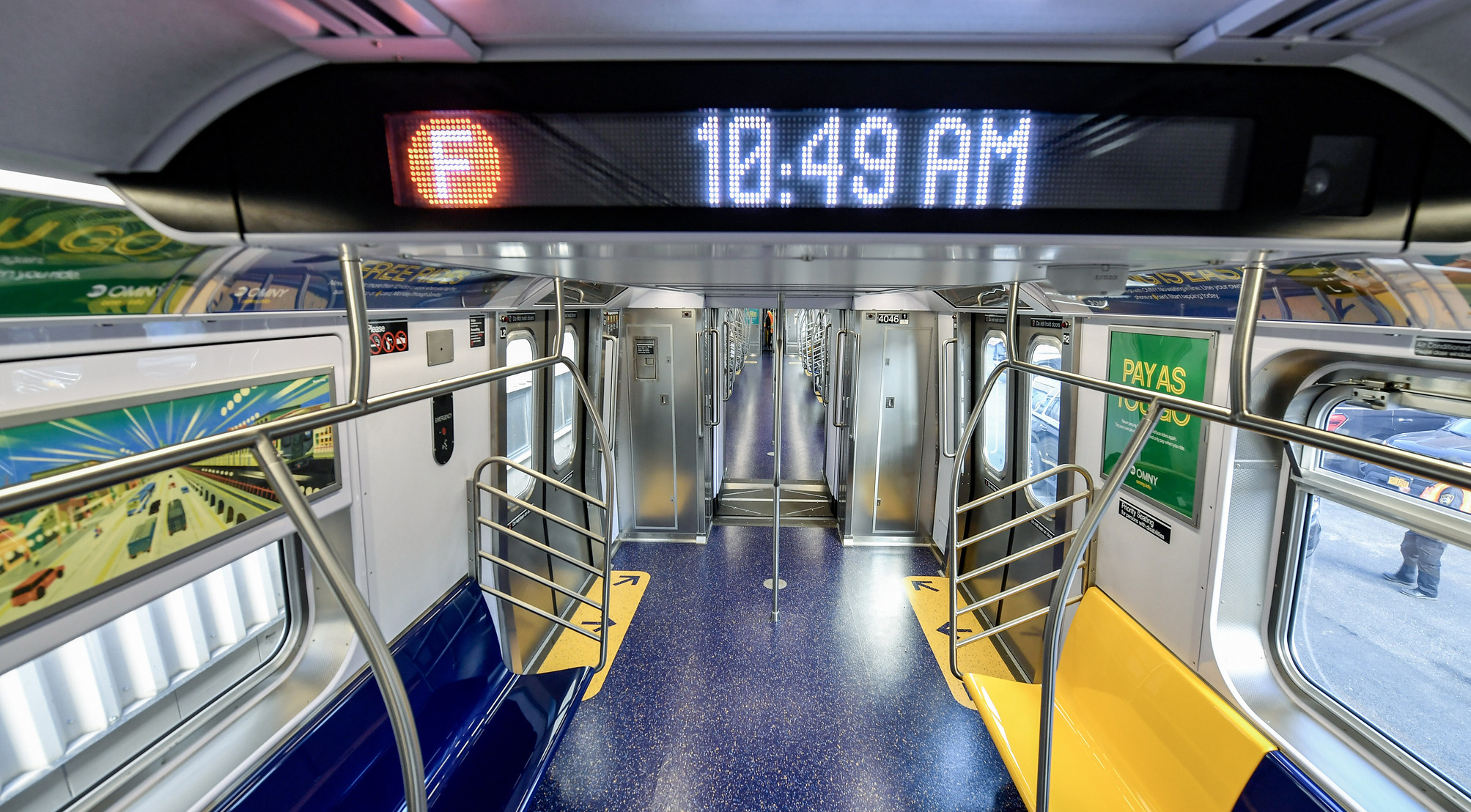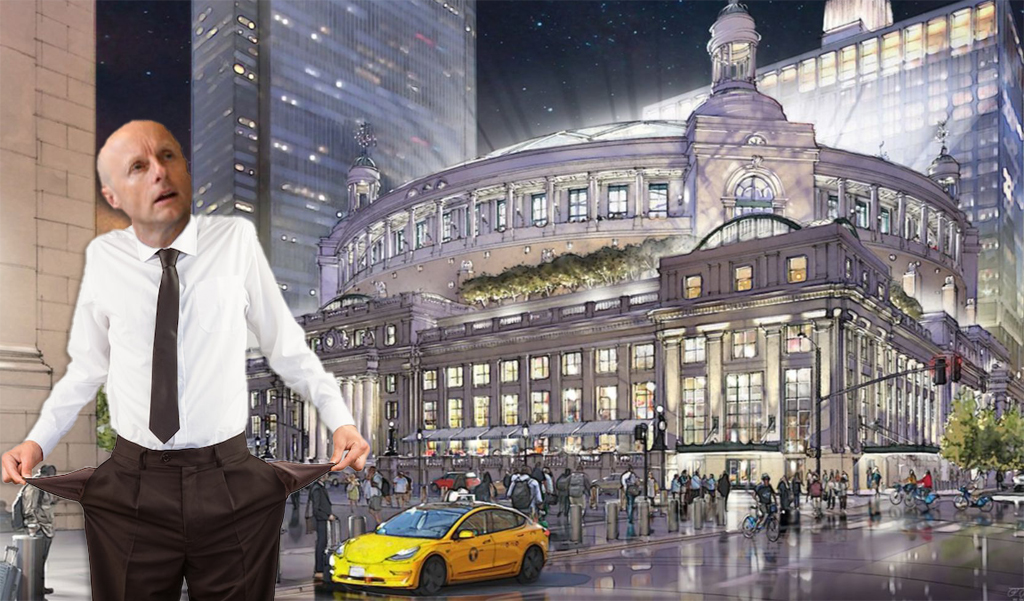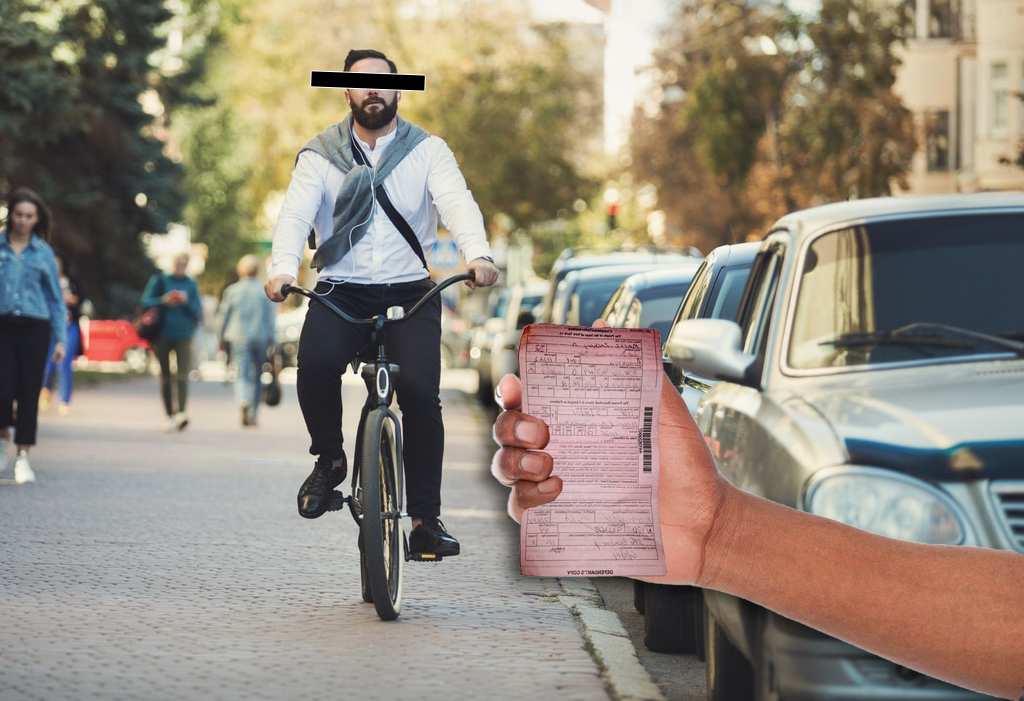The city's independent budget wonks have entered the free buses fray with an analysis of their very own — estimating the cost of eliminating bus fares to be lower than either supporters or skeptics of the proposal have suggested.
Free buses for all riders would cost the MTA $652 million annually, the Independent Budget Office wrote in a report released on Wednesday examining the cost of a bus fare jubilee.
"We estimate that the annual cost to the Metropolitan Transportation Authority (MTA) associated with eliminating local bus fares — including foregone fare revenue offset partially by any associated savings — would be $652 million if fares were waived for all riders," IBO Assistant Director Sarah Stefanski wrote in the study, which was requested by Council Member Chi Ossé (D-Brooklyn).
The IBO is a nonpartisan, city-funded agency that analyzes and publishes information on the municipal budget.
Number crunchers from the agency pegged free buses at an even lower cost than the $778 million-per-year price tag estimated by the group of politicians backing "Fix the MTA" legislation in Albany to eliminate the $2.75-per-trip fee.
MTA CEO and Chairman Janno Lieber has dismissed free buses as an "experiment" that the cash-strapped agency can't risk at the moment, but "Fix the MTA" proponent Assembly Member Zohran Mamdani (D-Queens) said the IBO's analysis is proof the idea is workable.
"This is a validation of the approach that we've taken, in that it shows that ... if you allocate the money that we have asked for you'd absolutely be able to make buses free," said Mamdani. "I think that this shows us that even our most ambitious ideas may actually end up costing us less than we're assuming right now."
The $652 million estimate was based on $708 million in revenue the MTA collected from bus fares in 2022, plus $91 million in potential lost subway revenue due to a predicted four percent drop in train trips as a result of free buses.
But the IBO also predicted that the MTA would save $33 million in expenses on unneeded OMNY personnel and EAGLE fare evasion team costs — and pick up another $113 million from bus to subway trips that are still made under the free bus program.
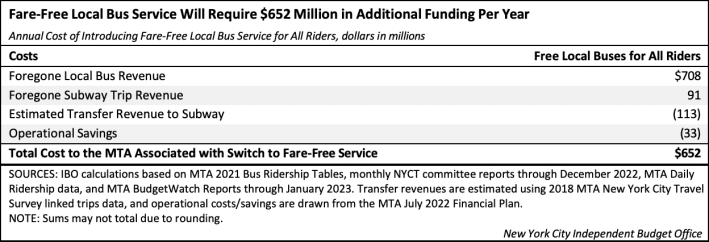
"Based on the MTA’s 2018 New York City travel survey, IBO estimates approximately 16 percent of bus trips conclude with a free subway transfer. If such trips continue to be made under fare-free bus service, the rider will enjoy a free bus ride but will then need to pay for the subsequent subway ride," Stefanski wrote in the study.
"The MTA would therefore make up a portion of foregone revenues in subway fares."
Asked about free buses during an appearance on WNYC on Wednesday, MTA top dog Lieber suggested the MTA would lose "a billion dollars" if it enacted the policy.
Fare-free bus service would drive ridership away from subways and onto buses, and require more drivers and vehicles to serve the increased ridership, he claimed.
"I'm a little concerned about unintended consequences," Lieber told host Brian Lehrer. "I think it would hit the MTA bottom-line by like a billion dollars. Not just because you wouldn't be collecting fares on buses, but also because you would have a significant shift from subway to bus, because it was free."
"You would have to buy more buses, hire more bus drivers, yada, yada, yada. I'm concerned about unintended consequences."
The IBO report delved into Lieber's "yada yada yada's" — though with slightly different assumptions.
Just 4 percent of bus trips will completely replace subway trips, Stefanski wrote — based in part on the fact that the subway is currently more reliable than the city's traffic-choked streets.
"We assume nearly all subway trips will continue, as the subway typically provides faster and more frequent service than parallel bus trips," she wrote.
Anticipating Lieber's concerns about needing more drivers and buses to serve the increased ridership, Stefanski said persistently low ridership since the start of the COVID-19 pandemic three years ago left plenty of room to grow.
A free bus experiment in Boston led to a 38 percent jump on one route, the report noted. That level spike would only bring the MTA back to 2019-era ridership levels, though there could be an additional impact if ridership ever exceed 2019's average of 1,770,394 per weekday.
"More detailed, route-level analysis is needed to accurately estimate the effects of increased ridership on the bus system’s operating and capital expenses," the report said.
If the $652 million is too much sticker shock for prospective buyers, the report used similar math to price the cost of fare-free buses for either reduced-fare MetroCard holders or Fair Fares MetroCard holders.
Providing free buses to riders over 65 or with qualifying disability currently eligible for half-priced fares would cost the MTA $40 million, the IBO said.
Doing so for the 270,000 current participants of the Fair Fares program, meanwhile, would cost $28 million, which the agency would lose $83 million in revenue if all 796,000 city residents who qualify for the program got free passes.
